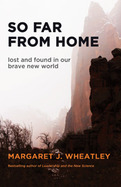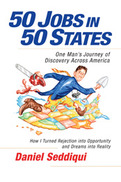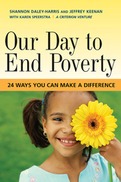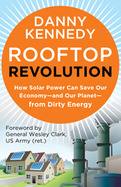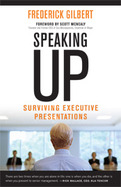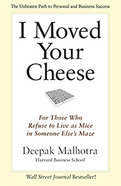2012
Combines penetrating insights into the problems and paradoxes of modern society with a fresh perspective on how to persevere in the face of unending challenges using the skills of insight and compassion.
AN INVITATION TO WARRIORSHIP I wrote this book for you if you offer your work as a contribution to others, whatever your work might be, and if now you find yourself feeling exhausted, overwhelmed, and sometimes despairing even as you paradoxically experience moments of joy, belonging, and greater resolve to do your work. This book describes how we can do our good work with dedication, energy, discipline, and joy by consciously choosing a new role for ourselves, that of warriors for the human spirit. This book contains maps of how we ended up in a world nobody wants—overtaken by greed, self-interest, and oppressive power—the very opposite of what we worked so hard to create. These maps look deeply into the darkness of this time so that we can develop the insight we need to contribute in meaningful ways. This book provides maps for the future, how we can transform our grief, outrage, and frustration into the skills of insight and compassion to serve this dark time with bravery, decency, and gentleness. As warriors for the human spirit, we discover our right work, work that we know is ours to do no matter what. We engage wholeheartedly, embody values we cherish, let go of outcomes, and carefully attend to relationships. We serve those issues and people we care about, focused not so much on making a difference as on being a difference.- Winner of the 2013 Nautilus Silver Award in Inner Prosperity/Right Livelihood
- By the bestselling author of Leadership and the New Science, Turning to One Another, and many other inspiring books
- Combines penetrating insights into the problems and paradoxes of modern society with a fresh perspective on how to persevere in the face of unending challenges using the skills of insight and compassion
- Wheatley's most personal work to date, dedicated to alleviating the exhaustion and despair of forward-thinking people
We live in a time of increasing polarization and irrationality, like a Tower of Babel with no distinction between fact and opinion, where information no longer changes minds. In cyberspace, we are bombarded with constant distractions and narcissistic self-making activities. Instant judgment and blame have replaced rational thinking. Organizations are bloated by bureaucracy and meaningless measures. Those working for positive change become exhausted, ill, and heartsick as their good work is ignored, underfunded, or attacked.
We need to acknowledge that we're lost in a world far different that we hoped for. We need new maps to navigate our brave new world. In Leadership and the New Science, Wheatley provided encouraging maps for how to design organizations based on living systems' capacity for inclusion, change, and adaptation. But in the twenty years since that book's publication, she's seen that in spite of our best efforts, the world that has emerged is on a destructive trajectory that won't be reversed by our working harder, finding new methods, or forming better networks.
But Wheatley has not written a book to increase our despair. Quite the contrary. Her intention is to inspire us to do our work with greater resolve and energy, using maps that won't mislead us. So Far From Home offers maps of two kinds. Using the newest of the new sciences, Wheatley shows how different dynamics interacted to create this harsh new world. A second kind of map invites us to choose a new role for ourselves as warriors for the human spirit. We develop the skills we need mostinsight, bravery, decency, compassionas we look honestly at this complex, difficult world. Clarity gives us enduring strength to discover our right work and create meaningful lives in this dark time.
So Far From Home is a startlingly honest, profoundly reflective, and yet paradoxically down-to-earth book rooted in the day-to-day experiences we all share but seen with fresh eyes. It is both affirming and provoking, calling us to reexamine our expectations and redefine our role for the work ahead. It is Wehatley's most personal, heartfelt work to date.
2011
Working as everything from a cheesemaker in Wisconsin, a border patrol agent in Arizona and a meatpacker in Kansas to a lobsterman in Maine, a surfing instructor in Hawaii and a football coach in Alabama, Daniel chronicles how he adapted to the wildly differing people, cultures, and environments. From one week to the next he had no idea what he'd be doing, where he'd be sleeping, what he'd be eating, or how he'd be received. He even became a roving news item, appearing on CNN, Fox News, World News Tonight, MSNBC and the Today Show—which was good preparation for his stint as a TV weatherman.
Tackling challenge after challenge—overcoming anxiety about working four miles underground in a West Virginia coalmine, learning to walk on six-foot stilts (in a full Egyptian king costume) at an Florida amusement park, racing the clock as a pit-crew member at an Indiana racetrack –Daniel completed his journey a changed man. In this book he shares stories about the people he met, the lessons he learned and explains the five principles that kept him going.
- Offers practical, easy steps anyone can take to help end extreme poverty
- Cleverly organized around the tasks we undertake in a typical day
- Helps you connect your daily experiences to those of people around the world
2012
- Written by one of the world's leading solar entrepreneurs
- Powerfully lays out the case for solar power, which author Danny Kennedy calls "the biggest untold economic story of our time"
- Filled with eye-opening insights and inspiration
- Click here to read the press release
Solar power's detractors have been proclaiming that the collapse of solar panel manufacturer Solyndra proves solar is just a hippie pipe dream. But as Danny Kennedy points out, Solyndra's downfall actually proves the opposite: the company failed because it wasn't able to compete in a red-hot industry, not because solar isn't ready for prime time. In this succinct, hard-hitting book, Kennedy proves that solar can save money, create jobs, and protect the environmentand only politics and perception stand in its way.
Signs of solar's ascendency are everywhere. The industry employs 100,000 people in the United States, twice as many as in 2009 and twice the number of coal miners. In 2011, Warren Buffett invested $2 billion in a solar farm, and General Electric bought a start-up solar manufacturer, announcing, "By 2020 this is going to be at least a $1 billion product line." Production of solar-generated electricity rose by 45 percent in the first three quarters of 2010, while electricity from natural gas rose only 1.6 percent and coal declined by 4.2 percent.
But powerful forces are still arrayed against solar power, and that's why Kennedy wrote this book. We need a rooftop revolution to break the entrenched power of the coal, oil, nuclear, and natural gas industries (which Kennedy calls King CONG) and their bought-and-paid-for allies. Kennedy systematically refutes the lies spread by CONGthat solar is expensive, inefficient, and unreliable; and many other untruths -- and shows that the solar industry can become a far greater source of jobs than it already is. Praising the pioneers who are pushing solar forward, Kennedy also decries the rampant political pandering that keeps us dependent on dirty and dangerous forms of energy. Now is the time to move away from the declining sources of the past and unleash the unlimited potential of the sun.
2013
- The first book to focus on presenting to senior managementpeople with very specific expectations and requirements and the power to make or break careers
- Draws on interviews with more than fifty C-level executives
- Includes nine chapters containing QR codes for free videos on the chapter topics
- Click here for the press release
There are two times when youre alone in life: one is when you die, and the other is when you present to senior management.
Rick Wallace, CEO, KLA-Tencor
If you are in middle management, you live with daily ambiguity, lack of control, and even chaos. To get anything done, you must present your ideas to decision makers, and those presentations can be brutal. Careers and projects can come unwound in a matter of minutes if a presenter at the top level doesnt know the rules.
Fear in the middle creates fog at the top, and bad decisions are made. The stakes are highone presentation can make or break a careerbut the rules are utterly unclear. Or at least they used to be.
Speaking Up is an indispensable resource for anyone who needs to know how to present to those higher up the chain. It offers revelatory insights into the minds of the men and women at the topinformation that is crucial to understanding what theyre looking for from presenters. Tactics and techniques that work well with peers, subordinates, and immediate supervisors may actually work against you when presenting up the chain.
Psychologist and coach Frederick Gilbert shows why these high-level presentations are about one thing: delivering information to help extremely talented, highly stressed people make good decisionsfast.
Gilbert focuses on three simple rules for speaking up: (1) know the people, (2) get to the point, and (3) improvise. Based on ten years of research and hundreds of interviews, Gilberts book is unique in featuring extensive comments from executives explaining exactly what they want and dont want in a presentation, as well as midlevel managers stories of triumphs and tragedies and what they learned as a result. This a must-read book for surviving high-stakes meetings.
2011
I Moved Your Cheese reveals what is possible when we finally discard long-held and widely accepted assumptions about how we should live our lives. After all, achieving extraordinary success, personal or professional, has always depended on the ability to challenge assumptions, reshape the environment, and play by a different set of rules—our own. But rejecting deeply ingrained beliefs is not easy. As Zed explains, “You see, Max, the problem is not that the mouse is in the maze, but that the maze is in the mouse.”
- The first serious challenge to the iconic bestseller Who Moved My Cheese?
- A thoughtful critique written by a Harvard Business School professor and bestselling author
- Uses the same playful and highly accessible fable format to encourage readers to examine their deeply held assumptions and to take control of their own destinies
- Click here for Press Release
With more than twenty-five million copies in print, Who Moved My Cheese? has become a phenomenon. It does offer some reasonable advice about adapting to change. Its certainly true that some of the events shaping our lives are beyond our control, and instead of struggling against them we must adapt and move on. But for all its good intentions, it ultimately advises us to unquestioningly accept our circumstances without exploring any possible alternativeslike mice in a maze mindlessly chasing after cheese.
I Moved Your Cheese takes a different point of view and offers an alternative approach. Harvard Business School professor and bestselling author Deepak Malhotra tells an inspiring story about a new generation of mice who begin to challenge assumptions and ask important questions. Rather than just accepting their situation and dutifully chasing the cheese, Max, Zed, and Big begin looking deeper, examining and reassessing what theyve been told are their limitations, and set out to chart a new course.
Innovation, entrepreneurship, creativity, problem solving, and business growth as well as personal growth depend on the ability to challenge accepted notions, reshape the environment, and play by a different set of rules: our own. We are not powerless to change our circumstances. We can control our destiny. By ana- lyzing our assumptions about the limitations we seem to face, we can, like Max, Zed, and Big, discover how to overcome them. But first we need to understand the ways we unknowingly hold ourselves back. As Zed explains to Max, The problem is not that the mouse is in the maze but that the maze is in the mouse.


